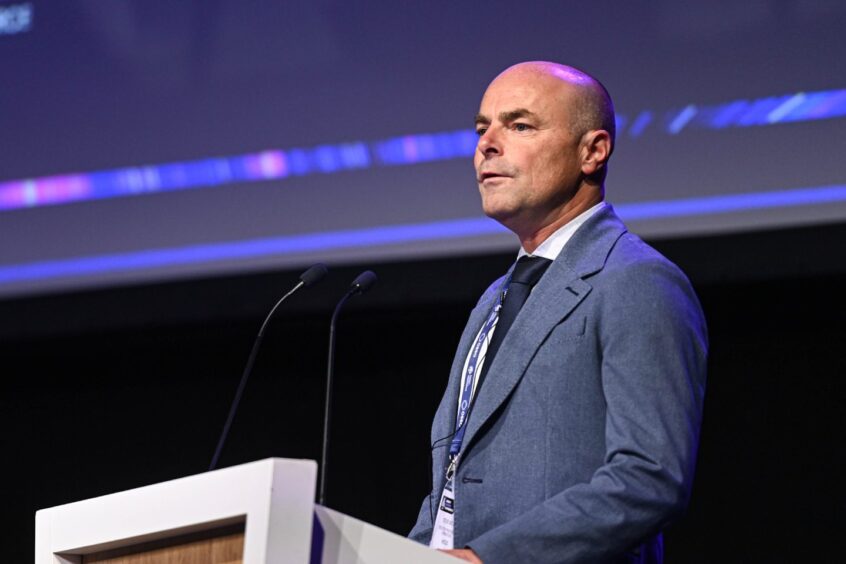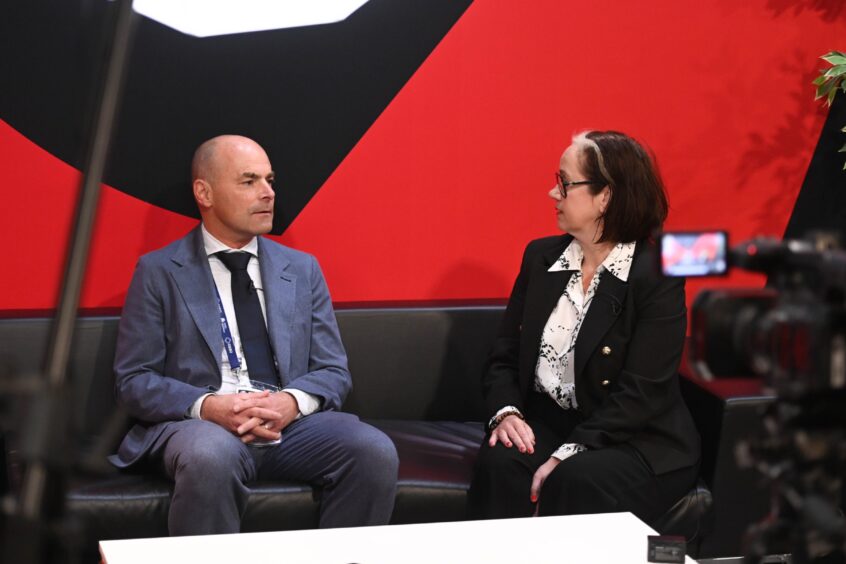
Aberdeen’s Wood (LON: WG) is “not for sale” but has entered a period of diligence with a potential buyer, a senor executive of the engineering giant said.
Steve Nicol, executive president of operations at Wood, gave an update on the process following a series of bids made for the business by Sidara, adding there was “absolutely no certainty which way this will go yet”.
Takeover bid
At the start of the month Wood said it had “decided to engage with” the Middle East-based firm in a process that would take a few weeks to complete. It applied to authorities to extend the time allowed for negotiations to 3 July.
Speaking to Energy Voice at the Energy Exports conference, Nicol said his firm has “been here before” , a reference to a series of takeover offers made last year by US-private equity firm Apollo which came to nothing.
Wood last month rejected a fresh cash offer from Sidara for 220p per share, which valued the group at around £1.52bn.
The board of the Aberdeen firm rejected the bid as it “continued to significantly undervalue the group and its prospects”.
However, Sidara’s latest offer was less than that made last year by Apollo, which had put an offer of 240 pence per share, reportedly valuing the firm at £1.66bn, before it walked away.
Wood shareholder Sparta Capital Management has called for the firm to explore a sale or list in the US over its “poor” share price.
Nicol insisted: “Wood is not for sale.
“We have had four unsolicited proposals from Sidara, which is an energy company in the Middle East. We have just recently entered into a period of diligence now.
“You might remember we were here about a year or so ago when there was other interest from private equity, an American private equity firm.
“We have been here before. There’s still absolutely no certainty which way this will go yet.”
He added he was “proud to work at Wood”, adding that the interest from buyers was a “validation” of the firm’s business.
“I am proud it is an Aberdeen company,” he said. “I equally see this is almost validation of the things we are trying to achieve in Wood that is attracting interest from others.”
He was speaking after taking part in a panel discussion at the event in Aberdeen earlier this week.
Windfall tax “certainly not promoting growth”
Wood’s executive leadership team member also addressed the impact of the windfall tax.
“Fiscal stability is absolutely critical”.
He said he had “heard a story” about one operator that is now being taxed at rate higher than 100%.
“That’s not viable. I think something needs to be done about that.”
Since January 2023, the EPL took the headline rate of tax for oil and gas companies operating in the UK to 75%.
The UK Labour party, which is leading in the polls ahead of the UK general election on 4 July, has pledged to increase it further, taking the headline tax rate to 78%, the same as Norway. It also aims to and remove what it sees as “loopholes” in the application of EPL, to increase the tax take.
Nicol said; “I am convinced that governments don’t have the balance sheet to do everything the need to do with energy transition.
“We need to be encouraging private investment in the energy sector and I do think the energy profits levy is not the way to be doing that.
“It’s really difficult to then get that certainty so the energy profits levy is certainly not promoting and stimulating growth.”
200 million elephants
He said the North Sea was “uniquely placed” to deliver on the opportunities for decarbonisation using carbon capture and storage.
He highlighted research which has found storage capacity in the form of depleted oil wells and aquifers in the North Sea meant the region was ideal for CCS.
“We have got the biggest capacity in to store CO2 in Europe – 78 gigatonnes.
“If you don’t know what a gigatonne is, it’s the equivalent weight of 200 million elephants.”
He added: “A model where the UK or the North Sea can be storing other European countries’ CO2 under the ground safely in the North Sea, that will really help with the economics of carbon capture and storage.
“We are not going to get to net zero without carbon capture and storage. That is not just the oil and gas industry. If you think about the cement industry and the steel industry, they are going to need a solution to capture CO2.
“I’m a big believer as well in home grown energy. We don’t want to just buy all the stuff we need from overseas. We have got to do it here in the UK.”
LISTEN to the podcast.
Recommended for you


 © DC Thomson
© DC Thomson © DARRELL BENNS / DC THOMSON
© DARRELL BENNS / DC THOMSON © DARRELL BENNS / DC THOMSON
© DARRELL BENNS / DC THOMSON